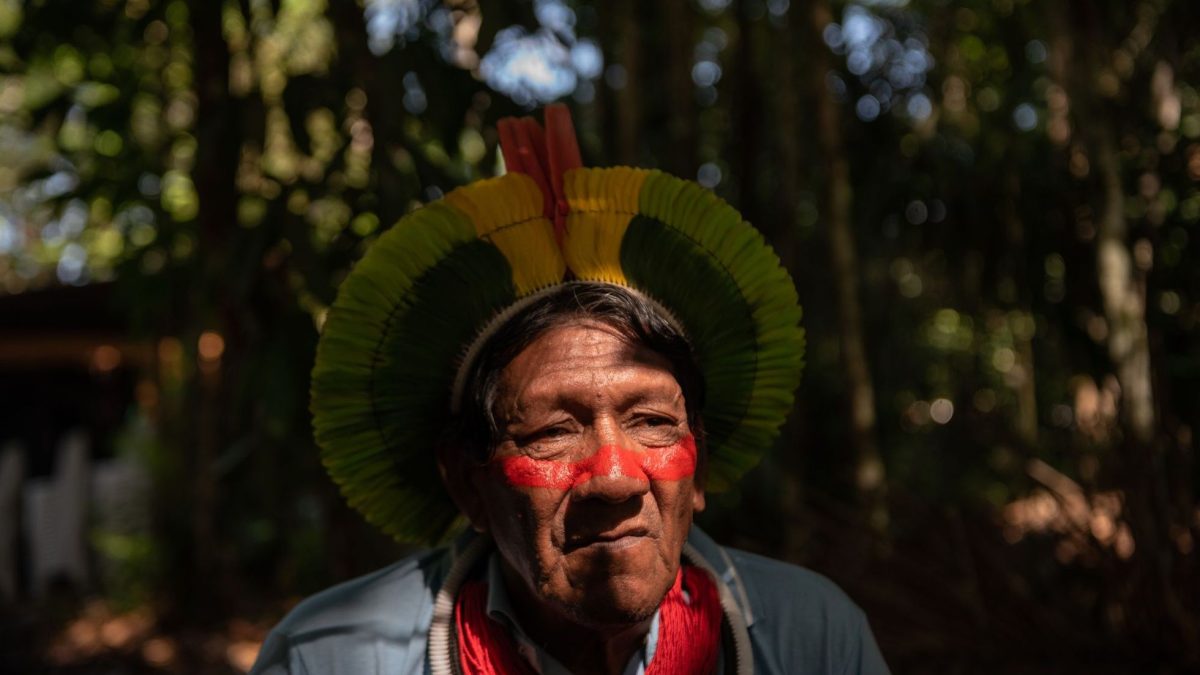
La Amazonia brasileña representa una cultura rica en numerosos aspectos culturales. En especial, esta zona habla 126 idiomas nativos, de los cuales, se han extinguido 25 desde que dio comienzo el siglo XXI.
La Amazonia abarca nueve países y contiene aproximadamente 300 lenguas nativas. Sólo la parte brasileña se corresponde con el doble del territorio de la Unión Europea. Según los cálculos de algunos investigadores que estudian el fenómeno de desaparición de las lenguas, hace una década, una cuarta parte de las lenguas amazónicas era utilizada por menos de 50 personas; y unas 15, por menos de diez indígenas.
Un ejemplo de estas lenguas es el tikuna, siendo el más utilizado de la Amazonia, hablado por unos 45.000. habitantes. D’Angelis, investigador y profesor del departamento de Lingüística de la Universidad Unicamp (Brasil) afirma que el proceso de extinción de lenguas en Amazonia se ha ralentizado en el siglo XXI, pero no detenido. Afirma, a su vez, que, desde el inicio del siglo, han desaparecido más de una lengua por año y apunta que una lengua muere cuando sólo existe un hablante que la utilice, puesto que la funcionalidad de comunicación queda totalmente anulada.
D’Angelis lleva muchos años participando en proyectos de revitalización lingüística, como la creación de la única web escrita íntegramente en lenguas indígenas, situando las lenguas en los “soportes de prestigio” del siglo XXI, a través de ordenador, vídeos o internet. Otra de las propuestas del investigador es favorecer que estas lenguas adopten la escritura, ya que muchas de ellas son carentes del sistema escrito, fenómeno que favorecería su conservación y conocimiento a través del tiempo.
Las lenguas de cada región representan una funcionalidad básica: la comunicación. Sin embargo, son, a su vez, un pilar fundamental del patrimonio inmaterial de una comunidad. También es frágil y cambiante, pero significa una riqueza que va más mucho allá de las palabras.
__
LANGUAGE EXTINCTION: THE CASE OF THE BRAZILIAN AMAZON
The Brazilian Amazon represents a culture rich in many cultural aspects. In particular, 126 native languages are spoken in this area, 25 of which have become extinct since the beginning of the 21st century.
The Amazon covers nine countries and contains approximately 300 native languages. The Brazilian part alone is twice the size of the European Union. According to estimates by researchers studying the phenomenon of language extinction, a decade ago, a quarter of Amazonian languages were used by fewer than 50 people, and some 15 by fewer than ten indigenous people.
One example of these languages is Tikuna, the most widely used language in the Amazon, spoken by some 45,000 inhabitants. D'Angelis, researcher and professor of the Department of Linguistics of the Unicamp University (Brazil) affirms that the process of language extinction in Amazonia has slowed down in the 21st century, but has not stopped. He also states that, since the beginning of the century, more than one language has disappeared per year and points out that a language dies when there is only one speaker who uses it, since the communication function is completely annulled.
D'Angelis has been participating in linguistic revitalization projects for many years, such as the creation of the only website written entirely in indigenous languages, placing the languages in the "prestigious media" of the 21st century, through computers, videos or the Internet. Another of the researcher's proposals is to encourage these languages to adopt writing, since many of them lack the written system, a phenomenon that would favor their preservation and knowledge over time.
The languages of each region represent a basic functionality: communication. However, they are, in turn, a fundamental pillar of the intangible heritage of a community. It is also fragile and changeable, but it signifies a richness that goes far beyond words.
__

